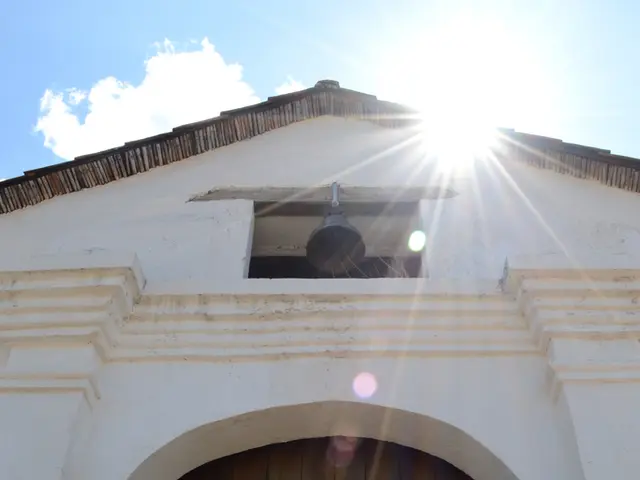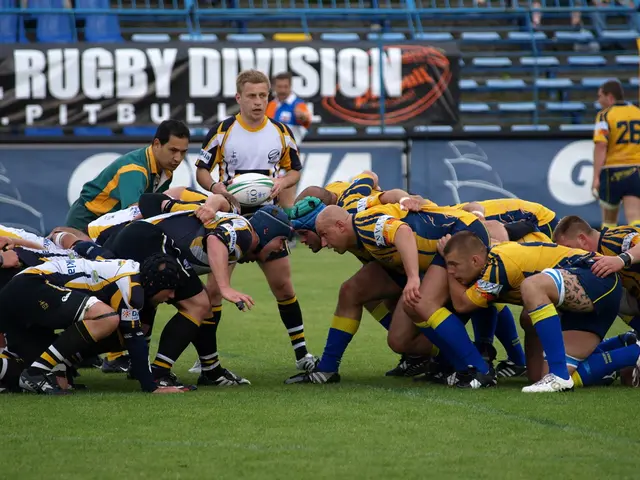Trump directs state financial halt towards public broadcasting services PBS and NPR
Title: Donald Trump Slams the Brakes on Federal Funding for PBS and NPR: What's Next?
In a bold move that's stirring controversy, the American president, Donald Trump, signed an executive decree on May 1st, aiming to axe federal funding for two renowned public networks - the Public Broadcasting Service (PBS) and the National Public Radio (NPR). Trump's accusation? Bias.
"Direct the board of the CPB [Corporation for Public Broadcasting] and all executive departments and agencies to halt federal funding for NPR and PBS," the decree states, adding that "no media entity enjoys a constitutional right to guaranteed public funding".
The CPB, the manager of federal investment in public broadcasting, already has its budget approved by Congress through 2027. This raises question marks over the decree's effectiveness, which asks the CPB's board to "rescind existing direct funding to the extent permitted by law and refuse future funding". The order also requires the CPB to review its 2025 general provisions to explicitly prohibit direct or indirect funding of NPR and PBS.
Since Trump's inaugeration, his administration has been relentless in their criticisms and attacks against traditional media. This latest move against PBS and NPR, which could potentially face legal challenges, is deemed by Politico as the most significant escalation of the White House's attack on the media to date.
Trump had previously asked Congress to scrap public funding for these two networks he dubbed as "horrible and completely biased."
"Left-wing propaganda"
In response, the White House argued, "NPR and PBS have fueled left-wing activism and propaganda with taxpayer money, which is inappropriate and a misuse of taxpayer funds". They supported these claims by pointing out, for instance, that the "PBS News Hour" program used the term "far right" 162 times but "far left" only six times over a six-month period.
More than 40 million Americans tune into NPR radio every week, and 36 million watch a local PBS television station each month, according to the media's own estimations. The director of NPR, Katherine Maher, had estimated in March that the radio would receive around $120 million from the CPB in 2025, amounting to less than 5% of its budget.
The Future of Public Broadcasting
The move aligns with the administration's commitment to slash public spending. In the media sector, this has manifested as plans to dismantle certain public media. The status of the PBS and NPR funding ban is currently unclear due to various legal challenges.
As of now, the Corporation for Public Broadcasting (CPB) is embroiled in a lawsuit against Trump and his administration officials over attempts to remove three of its board members[1]. This creates a legal framework to contest funding cuts since CPB's operational capacity is critical to distributing federal funds[2].
PBS CEO Paula Kerger has labeled the order as "blatantly unlawful" and stated that the organization is "exploring all options" to challenge it, citing threats to educational programming[2]. The implications of the funding cut could be significant with the CPB allocating ~$535 million annually to public broadcasters, which PBS states local stations rely on heavily despite most funding coming from non-government sources[1][2].
As the dust settles, it's uncertain how and when these legal battles will unfold. Stay tuned for updates on this rapidly evolving story.
[1] https://www.npr.org/2025/05/01/1162137842/cpb-sues-donald-trump-and-administration-officials-over-attempts-to-remove-thre (CPB lawsuit against Trump and administration officials)[2] https://www.pbs.org/newshour/politics/paula-kerger-ceo-of-pbs-on-trumps-efforts-to-cut-funding (PBS's response to Trump's funding cut)
- The CPB's board is asked to rescind existing direct funding to NPR and PBS and refuse future funding, in line with Trump's executive decree that aims to halt federal funding for these public networks.
- The potential legal challenges posed by the funding cut for NPR and PBS could heighten tensions in the arena of policy-and-legislation and politics, specifically concerning the stance on war-and-conflicts and general-news.
- Despite constitutional disputes surrounding the guarantee of public funding for media entities, the decree states that no media entity, such as NPR and PBS, enjoys such a right.
- The controversy surrounding Trump's decision to cut funds has emerged as the most significant escalation in White House attacks on traditional media, a move that the White House argues is necessary due to the fueling of left-wing activism and propaganda with taxpayer money by these networks.
- In response to the potential funding cut, PBS CEO Paula Kerger has stated that the organization is exploring all options to challenge this "blatantly unlawful" order, citing threats to educational programming, which receives substantial funding from the Corporation for Public Broadcasting.









